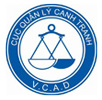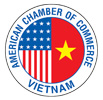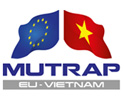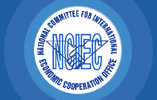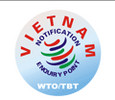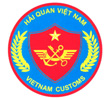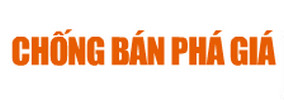
In incremental stages over the past year, President Trump has imposed punitive tariffs on imports from China. Currently, about $250 billion worth of Chinese products are subject to tariffs of 25 percent.
As one would expect, and as Trump intended, the value of U.S. imports from China has dropped off considerably. But what may not have been anticipated is the growth in imports from other countries or, for that matter, the increased incentive to commit customs fraud.
Through the first four months of 2019, imports from China are down 12 percent from the comparable period last year — from $162 billion to $143 billion. Meanwhile, over the same period, U.S. goods imports from the world increased slightly from $804 billion to $807 billion.
That’s paltry import growth for a robust economy, but suggests that at least some of the goods, components and raw materials that U.S. retailers and manufacturers are foregoing from China can be sourced elsewhere. It may also mean that Chinese-made products are being transshipped and relabeled as originating in other countries.
There were recent reports that the Vietnamese government discovered export-import companies engaged in — or planning to commit — customs fraud by rerouting Chinese products through Vietnam to the United States with fake country-of-origin labels in order to avoid the punitive tariffs. The products included “everything from agriculture to textiles and steel.”
This shouldn’t be surprising. Trump’s high tariffs on nearly half of all U.S. imports from China have created opportunities for massive rewards for risk-takers to profit from the large cost differentials. After all, tariffs are taxes on consumption and when consumption taxes get too high, transactions get chased into the shadows.
Prohibition in the 1920s (an alcohol tax rate of infinity) created bootleggers and filled the coffers of organized crime. High state taxes on cigarettes, especially when lower cigarette taxes prevail in other states, encourage smuggling and transactions in the black market.
Likewise, 25-percent tariffs of Chinese goods that face lower or no tariffs when they come from Vietnam provide enormous opportunities for arbitrage.
Much has been said about how badly the U.S.-China trade war will uproot supply chains and impose deep costs on the U.S., Chinese and global economies. But Vietnamese producers stand to gain disproportionately from the U.S. tariffs on China, as they begin to play a larger role in global value chains.
The trade data show that, as U.S. imports from China declined by 12 percent in the first four months of 2019, they increased by a whopping 32 percent from Vietnam over the same period.
In the first four months of 2018, slightly less than 42 percent of imports from China were subject to duties that averaged 2.6 percent. During the same period in 2019, Chinese products subject to U.S. import duties increased to 63 percent and the average tariff was 7.5 percent.
Meanwhile, as the costs of sourcing in China have increased, they have declined in Vietnam. The percentage of imports from Vietnam subject to duties decreased from 53 percent to 48 percent, and the average applied duty declined from 7.5 percent to 6.8 percent. For the first time ever, average U.S. tariffs on imports from Vietnam are lower than they are on imports from China.
Across industries, the data comparing the first four months of 2018 and 2019 suggest that Vietnam is poised to capitalize. Whereas imports of chemicals from China decreased by 16 percent, they increased by 231 percent from Vietnam.
Rubber from China declined 20 percent and from Vietnam increased 17 percent. The same pattern persists for wood products, paper products, clothing, footwear, electrical machinery, furniture and toys.
Accordingly, the Vietnamese don’t want to get on the wrong side of the U.S. authorities by failing to deter transshipment and fraud. The Trump administration has been extremely demanding of U.S. trading partners, insisting they adopt rigorous measures to assure Chinese products, especially steel, don’t get transshipped through their countries and into the United States.
Ideally, the punitive tariffs on China would be removed and the U.S. government would apply the same tariff rate— preferably 0 percent — to all imported goods, regardless of origin.
That would encourage production to occur where it is most efficient, reduce senseless consumption taxes on U.S. businesses and consumers and eradicate the need for expensive and often heavy-handed customs enforcement procedures.
Daniel Ikenson is director of the Cato Institute’s Herbert A. Stiefel Center for Trade Policy Studies.
Source: The Hill
Key words: Customs, fraud, thriving, thanks to, Trump, trade war



